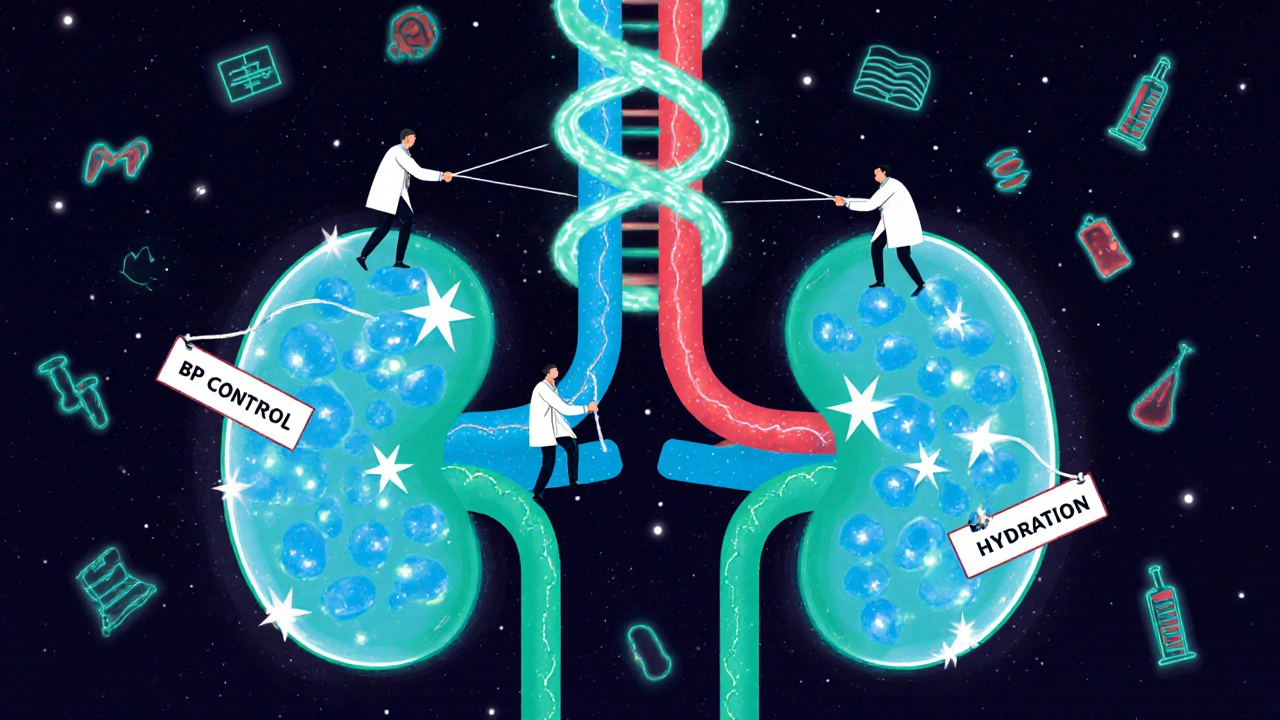ARPKD: What You Need to Know About Autosomal Recessive Polycystic Kidney Disease
When a child is born with ARPKD, Autosomal Recessive Polycystic Kidney Disease, a rare inherited condition that causes fluid-filled cysts to form in the kidneys and sometimes the liver. Also known as infantile polycystic kidney disease, it affects roughly 1 in 20,000 newborns and is often diagnosed before birth or in early infancy. Unlike the more common adult form of polycystic kidney disease, ARPKD shows up early—sometimes even in the womb—and can cause serious problems with kidney function right from the start.
Children with ARPKD don’t just have swollen kidneys. The cysts mess with how the kidneys filter waste and control blood pressure. Many babies need help breathing at birth because their underdeveloped lungs are squeezed by enlarged kidneys. Others struggle with high blood pressure, poor growth, or frequent infections. The liver is often involved too—fibrosis can develop, making it harder for the organ to process nutrients and toxins. This dual impact on kidneys and liver is what makes ARPKD so complex to manage.
There’s no cure yet, but treatment focuses on supporting organ function and preventing complications. Blood pressure meds, dialysis, and eventually transplants are common paths. Some kids need feeding tubes because they can’t gain weight. Others need regular ultrasounds to track cyst growth. The good news? Many children with ARPKD live into adulthood with proper care. Research is moving fast, especially in gene therapy and targeted drugs that might slow cyst growth.
Parents often ask: Is this genetic? Yes—both parents must carry the faulty gene for a child to have ARPKD. If you have a family history, genetic counseling can help you understand risks before having more children. And if your child has ARPKD, knowing what to watch for—like sudden swelling, fever, or changes in urine—can catch problems early.
What you’ll find here aren’t just medical summaries. These are real-world stories and practical guides from families and doctors who’ve walked this path. From managing medications at school to understanding transplant timelines, from dealing with insurance hurdles to finding support groups—you’ll see how ARPKD affects daily life, not just lab results.
About
Health and Wellness

